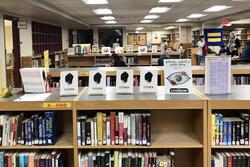"Planting Seeds": A Writer's Job Interview
An interview that has already happened (in my mind).
The waiting room is cold and tense. I want to put on my coat but then it would cover up my suit. I need to look professional.
“He’s ready for you, Ms. Peck,” says the receptionist, in a monotonous tone that reminds me she’s probably called tons of women in for this interview. I’m just another one of them. I roll my shoulders back before heading into the office in the corner. I’m hoping my confident posture will hold out when I walk through the door.
“Hello, sit,” says a balding middle-aged man as he gestures weakly towards the cushioned chair across from him. “My name is Gabriel Madison, as I’m sure you know, and I’ve worked as the Gazette’s editor-in-chief for the past two years. That’s really all you need to know about me.”
“I’m Lilah Peck, It’s nice to meet you,” I say, waiting to shake his hand, but he doesn’t extend one. Fine with me. I try to relax and consider all of the practice questions I’ve been answering over the past few days.
“So, Ms. Peck, you have quite an impressive resume, and your recommenders speak very highly of you. But now that you made it into the room, tell me what I really want to know; why are you a writer?”
Of all the questions I’d prepared for, I didn’t think of this one. I could tell him my inspiration for any of my pieces. I could tell him why those topics interest me and I could argue against my thesis in any of them. Why is this question so hard? I know I should be heavily filtering what I have to say. I know I need to carefully decide what statement would make me the most desirable candidate for the job, but I don’t think that would be honest. He probably wants to hear me say that I write because I can change the world with my words. But I can’t. I can only change myself. And I do, every time I write. When I write something down, I never feel the same way I did before I wrote it. It seems cocky to assume that I have the power to change other people in the same way. Maybe that’s why the cocky people get the job.
“I write because, when my ideas hit the page, they become real and relevant in a way they weren’t before,” I exclaim, before carefully constructing a response like I told myself I would.
“Relevant to whom?” he prods.
I can work with this.
“Myself primarily, or maybe sometimes solely. I’m not sure how many people read my material or how many of those readers are impacted by what I have to say. My writing may not be relevant to them at all. It might not impact their actions or beliefs in any way, but it certainly impacts my own. I use writing to understand myself. I write so I can take time to process and reflect. It’s my form of meditation. I stew with my own thoughts, and it makes me feel in control. I can manipulate words however I choose, and I can take time to deliberate on the perfect sequence of words to sharply reflect my once ambiguous muddled thoughts. Everything is in the blurriness of my brain before I put it on paper. That’s when it becomes real. I first use my words for myself, to sort my thoughts and decide what I believe, and then I use my words to share my beliefs, if not in an attempt to have other people feel the same way, then simply to feel understood,” I say. I realize I rambled. That’s not a sign of an articulate writer, but maybe it shows that I’m passionate.
“So your writing is purely self-indulgent,” he says. I’m having a hard time placing his tone. It’s somewhere between patronizing amusement and just patronizing. I’m hoping for the former.
"You could say that, but I think of it this way: writing helps me decide my opinions and beliefs, which guide my actions, which guide the way that I impact my community. Yes, my writing is primarily for myself, but I only have control over myself, so how can I expect my words to do anything for anyone else? That’s beyond my control! I don’t think my writing is to convince anyone of anything, it’s just to plant the seed, and to get people thinking. I just want to inspire thought and reflection. I can’t expect a certain conclusion,” I say.
“And what if their conclusion is that everything you have to say is ridiculous and they completely disagree?” he says.
“Fine, my job is simply to plant the seed. I don’t know how it will grow. I provided my perspective and that’s all I can do. I would like to think that my writing causes people to consider ideas they hadn’t before and maybe even leave a select few saying ‘that’s exactly how I feel, but I just didn’t know how to say it!’ That won’t happen with every piece; but the more pieces I write, and the more I come to better understand my own ideas, the better I can use them to connect others feelings and thoughts with my words. It starts with my words for me, but I hope it ends with my words for those who don’t know how or don’t get the chance to say them for themselves,” I say, hoping that didn’t come out cliché. I’ll just have to impress him with the next question. I hope he asks me about my piece on religion.
He leans back in his chair and spins a pen in his hand, looking at me like he’s been waiting for me to finish since before I opened my mouth. “Well, Ms. Peck, it was really nice to meet you. That was really all I needed,” he says. I’m tempted to check my watch. It hasn’t even been fifteen minutes. I try to stand gracefully and with confidence, as if he didn’t just tell me that I wouldn’t be getting the job. I leave and am back in the waiting room. It seems colder than before.
This piece was written as part of JWA’s Rising Voices Fellowship.






